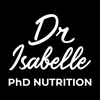TOWARDS A MORE ECO-RESPONSIBLE WAY OF EATING

Collaboration avec la Boulangerie St-Méthode
Eating in an eco-responsible way means showing some concern for the way your diet impacts both your health and that of the environment, while ensuring respectable living conditions for the people who produce the food you eat. It’s a growing trend, especially among younger people. Here are my tips to help you adopt an eco-responsible approach…
1. Opt for organic foods
Organic foods use production or processing methods that promote the protection of the environment. Their production and processing exclude the use of synthetic chemical fertilizers and pesticides, genetically modified organisms (GMOs), food additives, and synthetic preservatives. Several certifying bodies, including Ecocert Canada, are recognized in Quebec. Always keeping up with the latest trends, St-Méthode bakery has just launched three new certified organic breads: organic Kamut bread, organic integral bread, and organic multi-grain bread with sprouted wheat, all of which are part of the La Récolte de St-Méthode range. Each of these breads is GMO-free, vegan, and holds “Ecocert Canada” and “Aliments préparés au Québec BIO” certifications. Each two-slice serving provides between 2 and 4 grams of fibre and between 6 and 7 grams of protein.
2. Purchase local products
Local products travel shorter distances compared to imported foods, thereby reducing greenhouse gas emissions, which are bad for the environment. Local foods are also generally picked when ripe—in other words, when they are at their best in terms of flavour and nutrients. Lastly, when you choose local products, you are also boosting the local economy by supporting producers in your region. At the grocery store, find local products by looking for the “Aliments du Québec” and “Aliments du Québec BIO” logos.
3. Choose vegetable protein
Plant-based protein contains more fibre and less saturated fat than animal protein, which makes it beneficial to cardiovascular health. In addition, vegetable protein is more sustainable than animal protein, as its production generates less greenhouse gases. Plant-based proteins include legumes (e.g. green lentils, white beans, split peas), nuts (e.g. almonds, pistachios, hazelnuts), seeds (e.g. chia, flax, hemp), soy, tofu, tempeh, textured vegetable protein (TVP), etc.
4. Reduce your food waste
According to Recyc-Québec, 1.2 million tonnes of edible food is lost or goes to waste. This represents 3.6 million tonnes of greenhouse gas emissions—more than the combined emissions of the province’s maritime, air transport, and railway sectors. Reducing food waste is therefore a key component when adopting a more eco-responsible diet. To help get you there, you can freeze leftovers for a future meal or use wilted vegetables in soups, purées, or stews. As for leftover bread, it can be turned into delicious croutons for soups and salads.
Summing up
Eco-friendly eating is trendier than ever.
Buying certified organic and local products is in keeping with an eco-responsible approach.
Limiting food waste helps save money while protecting the environment.
Replacing some animal protein with plant-based protein helps reduce your environmental footprint.
Want to know more about St. Method Bakery's product line? CLICK HERE
Merci











1 comment